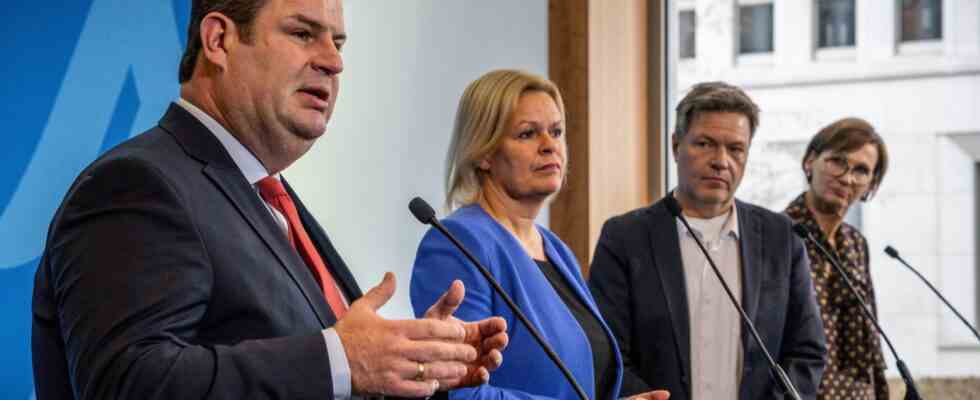Status: 11/30/2022 1:36 p.m
The federal government has agreed on new regulations for the immigration of skilled workers. The cabinet passed the key points for the law. According to Heil, Minister of Labor, prosperity can only be secured with the help of the “right forces”.
According to the Federal Government, skilled workers from abroad should be able to come to Germany more easily. The cabinet has decided on the cornerstones for a corresponding draft law. “Germany will need all helping hands and bright minds in the future,” said Labor Minister Hubertus Heil when presenting the plans. “Securing skilled workers is securing prosperity.”
In all areas, such as nursing, childcare or public administration, millions of additional workers would be needed by 2035, said the SPD politician. “We will pull out all the stops to leverage domestic potential.” This also includes easier access for foreign workers to the German labor market. The federal government’s plans for a “massive recruitment strategy” are a “big and important step”.
Habeck: “Fast and pragmatic” implementation
Economics Minister Robert Habeck emphasized that in addition to climate protection and digitization, demographic change in the labor market is bringing about major upheavals. Procedures for accelerating qualified immigration must be “implemented quickly and pragmatically”. “We will lower the limits and thresholds for immigration. We will improve integration,” said the Green politician.
Interior Minister Nancy Faeser (SPD) said she was confident that she would soon be able to present a concrete draft law to implement this project. According to Heil, the Bundestag should deal with the innovations in the immigration of skilled workers at the beginning of next year.
Professional experience should be given more consideration
Among other things, the draft provides that recognized foreign skilled workers can also work in occupations that have little or nothing to do with their training. For example, a mechanic could be hired as a warehouse clerk or a policewoman as a waitress. Work experience should be given more consideration when issuing a work visa. The qualifications acquired in the country of origin do not necessarily have to be recognized before entry. Foreign university graduates will continue to receive the “blue card”.
In addition, job seekers from third countries “with good potential” should be able to stay in Germany to look for a job via a point system. The key points agreed between the ministries state: “The selection criteria can include qualifications, language skills, professional experience, a connection to Germany and age.” What is also new, for example, is that professional experience is given more weight.
Discussions about points system expected
Discussions between the SPD, FDP and Greens are to be expected, especially with regard to the points system – until a draft law is available. For example: How many points are there for which language level? And how can the “German connection” be proven?
The background here is the consideration that integration often goes better if you have already made several trips to the country, are employed by a German employer abroad or have relatives already living in Germany. Whether these relatives also have to work themselves is one of the questions that has not yet been clarified.
Plans to reform naturalization
Easier labor immigration is part of a package of proposed legislation on asylum and migration policy. Interior Minister Faeser wants to soon bring a bill into the cabinet that will make naturalization easier.
This Friday, the Bundestag is to vote on the so-called right of residence. It is intended to offer prospects to well-integrated foreigners who have been living in Germany for several years without a secure status. Anyone who has lived in the country for five years as of October 31, 2022 and has not committed a crime should be given 18 months to meet the requirements for long-term residence – this includes knowledge of German and securing their own livelihood.

